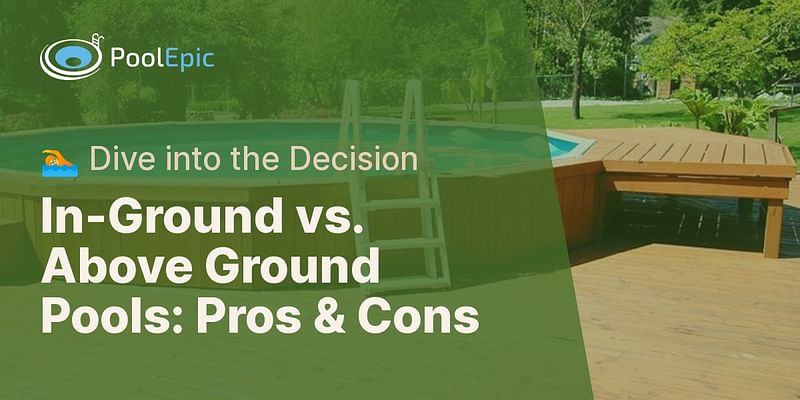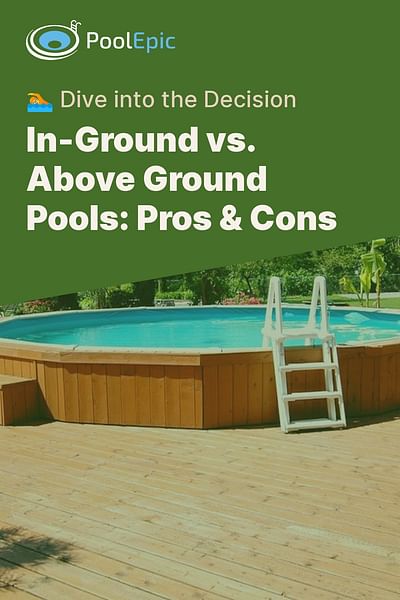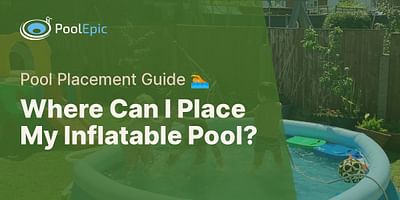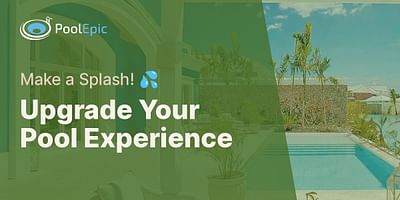Elliott Langosh is a seasoned swimming instructor with a unique passion for inflatable pools. He sees these pools as the perfect gateway for children to learn swimming. Elliott imparts his wisdom through Pool Epic, sharing insightful tips and suggestions based on his extensive professional background.
When it comes to choosing the right pool for your home, it's essential to understand the pros and cons of in-ground and above ground pools. Both have their unique advantages and drawbacks, depending on your specific needs and circumstances.
In-Ground Pool Benefits
For many, an in-ground pool is the epitome of luxury. These pools are often larger and deeper than their above ground counterparts, allowing for more versatile usage such as diving and laps.
The aesthetic appeal of in-ground pools is another major advantage. They blend seamlessly into your landscape and can be tailored to suit your design preferences, from the pool shape to the surrounding deck.
In-ground pools also tend to have a longer lifespan, often lasting for decades with proper maintenance. This durability can add value to your property, making it an appealing feature for potential buyers.
In-Ground Pool Drawbacks
However, in-ground pools come with their own set of challenges. They are significantly more expensive to install, often requiring professional excavation and construction. This process can be lengthy and disruptive to your backyard.
Maintenance costs can also be higher for in-ground pools, due to their larger size and more complex systems. Plus, they may increase your property taxes since they're considered a permanent home improvement.
Above Ground Pool Advantages
On the other hand, above ground pools are a more affordable option. They are cheaper to purchase, install, and maintain. You can even find DIY kits for an easy above ground pool installation.
Above ground pools are also portable. If you move homes or simply want to reclaim your backyard space, you can disassemble and relocate the pool. This flexibility is a significant advantage, especially for renters or those with changing needs.
Another benefit of above ground pools is their safety. The pool's elevated structure can deter unsupervised access, especially from young children or pets. Adding a removable ladder or enclosing the pool with a fence can enhance this safety feature.
Above Ground Pool Drawbacks
Despite these benefits, above ground pools have some downsides. Their size and depth are often limited, which might not suit those wanting to swim laps or dive. The pool's structure can also be less aesthetically pleasing, and it may not withstand harsh weather conditions as well as an in-ground pool.
Finally, above ground pools typically have a shorter lifespan. With proper care, they can last up to 15 years, but this is still significantly less than most in-ground pools.
To sum up, your decision between an in-ground and above ground pool will depend on various factors, including your budget, space, aesthetic preferences, and usage needs. Weighing the pros and cons of each option can help you make an informed choice that brings you and your family years of enjoyment.
Comparison Between In-Ground and Above Ground Pools
To give you a clearer picture, let's take a look at the following comparison table which breaks down the key differences between in-ground and above ground pools in terms of cost, installation time, lifespan, maintenance, aesthetics, and safety.
| Criteria | In-Ground Pool | Above Ground Pool |
|---|---|---|
| Cost | 💰💰💰: Generally more expensive due to installation and materials. | 💰: Generally less expensive, both in terms of installation and materials. |
| Installation Time | ⏳⏳⏳: Longer installation time, typically several weeks to months. | ⏳: Shorter installation time, can be set up within a few days. |
| Lifespan | 📅📅📅: Longer lifespan, can last for decades with proper maintenance. | 📅: Shorter lifespan, typically lasts around 7-15 years. |
| Maintenance | 🔧🔧: Regular maintenance required, but generally easier due to built-in systems. | 🔧🔧🔧: Regular maintenance required, can be more challenging due to lack of built-in systems. |
| Aesthetics | 🎨🎨🎨: Offers more design flexibility and often considered more visually appealing. | 🎨: Limited design options, but can still be attractive with the right landscaping. |
| Safety | 🔒🔒: Can be safer as it's harder for children to fall in, but requires a safety fence. | 🔒🔒🔒: Generally safer due to higher entry point, but can still pose risks if not properly secured. |
This table should give you a good idea of what to expect from both types of pools. Remember, the best choice will depend on your specific needs and preferences.















